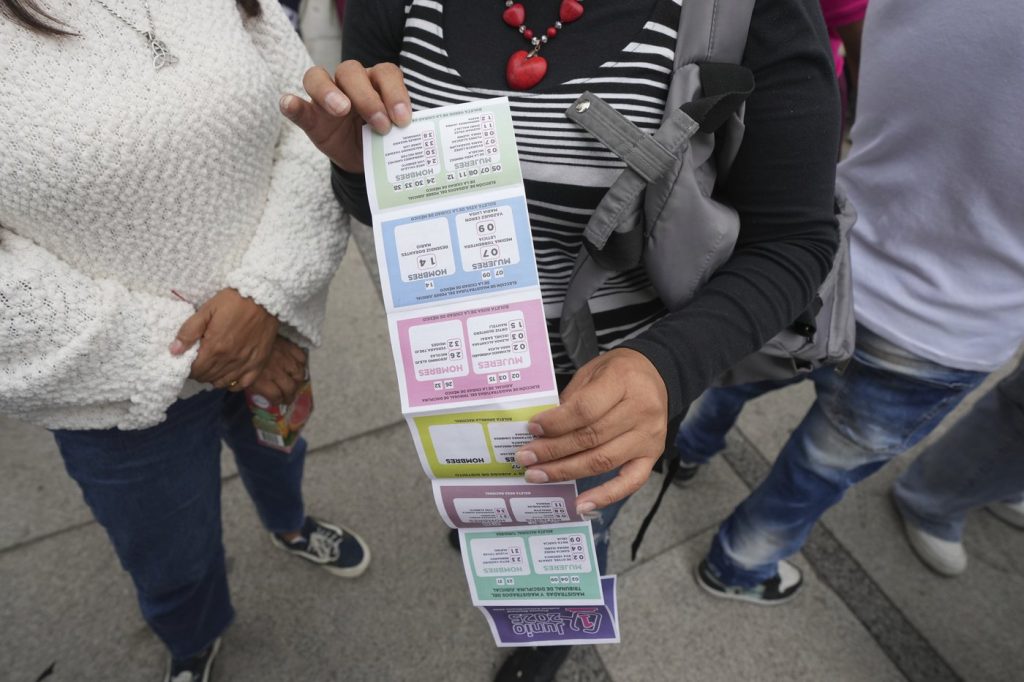MEXICO CITY (AP) — Mexico is conducting its inaugural judicial elections on Sunday, a move that has ignited controversy and confusion among voters who are grappling with a complicated process aimed at overhauling the nation's court system. This transformation, initiated by the ruling party Morena, has been met with protests and critical views, as detractors argue that the reform represents an attempt by those currently in power to assert control over a judicial branch that has historically resisted political influence.
Laurence Patin, director of the legal organization Juicio Justo, expressed that this election signifies an effort to dominate the judicial system. He stated, “It’s an effort to control the court system, which has been a sort of thorn in the side of those in power. But it’s a counter-balance, which exists in every healthy democracy.” Instead of a merit-based selection of judges, voters will be presented with approximately 7,700 candidates competing for over 2,600 judicial positions.
The elections are promoted by President Claudia Sheinbaum and her allies as a means to cleanse the judiciary of corruption, a significant issue in a country plagued by high impunity rates. Critics, however, warn that the electoral process may jeopardize democratic principles and could lead to increased infiltration of organized crime and corrupt actors into the judicial system.
Leading up to the elections, civil society organizations such as Defensorxs have raised concerns regarding the candidacies of individuals who have previously represented notorious cartel leaders, as well as local officials implicated in corruption scandals. Additionally, the election features ex-convicts who served time for drug trafficking and candidates linked to a religious group whose leader is imprisoned in California for sexually abusing minors.
Confusion surrounds the voting process itself, which Patin criticized as hastily assembled. Voters may face the daunting task of choosing from more than a hundred candidates while lacking clarity on party affiliations and without extensive campaigning. As a result, many citizens feel uninformed and apprehensive about the upcoming vote. The Mexican electoral authority has begun investigating voter guides distributed nationwide, amid claims by critics that political parties are trying to manipulate the electoral outcome.
Miguel Garcia, a 78-year-old former construction worker, expressed his frustration at the lack of information available to voters like himself. While observing campaign posters and voter guides outside the Supreme Court, he lamented, “In the neighborhood where I live, there’s no information for us. I’m confused because they’re telling us to go out and vote, but we don’t know who to vote for.” Garcia's efforts to gather information have led him across Mexico City, yet he struggled to find accessible details about the candidates.
The atmosphere around Mexico’s first judicial elections is indicative of larger struggles within the country’s political climate, reflecting profound concerns regarding integrity, transparency, and genuine democratic representation in such a pivotal governmental overhaul.











